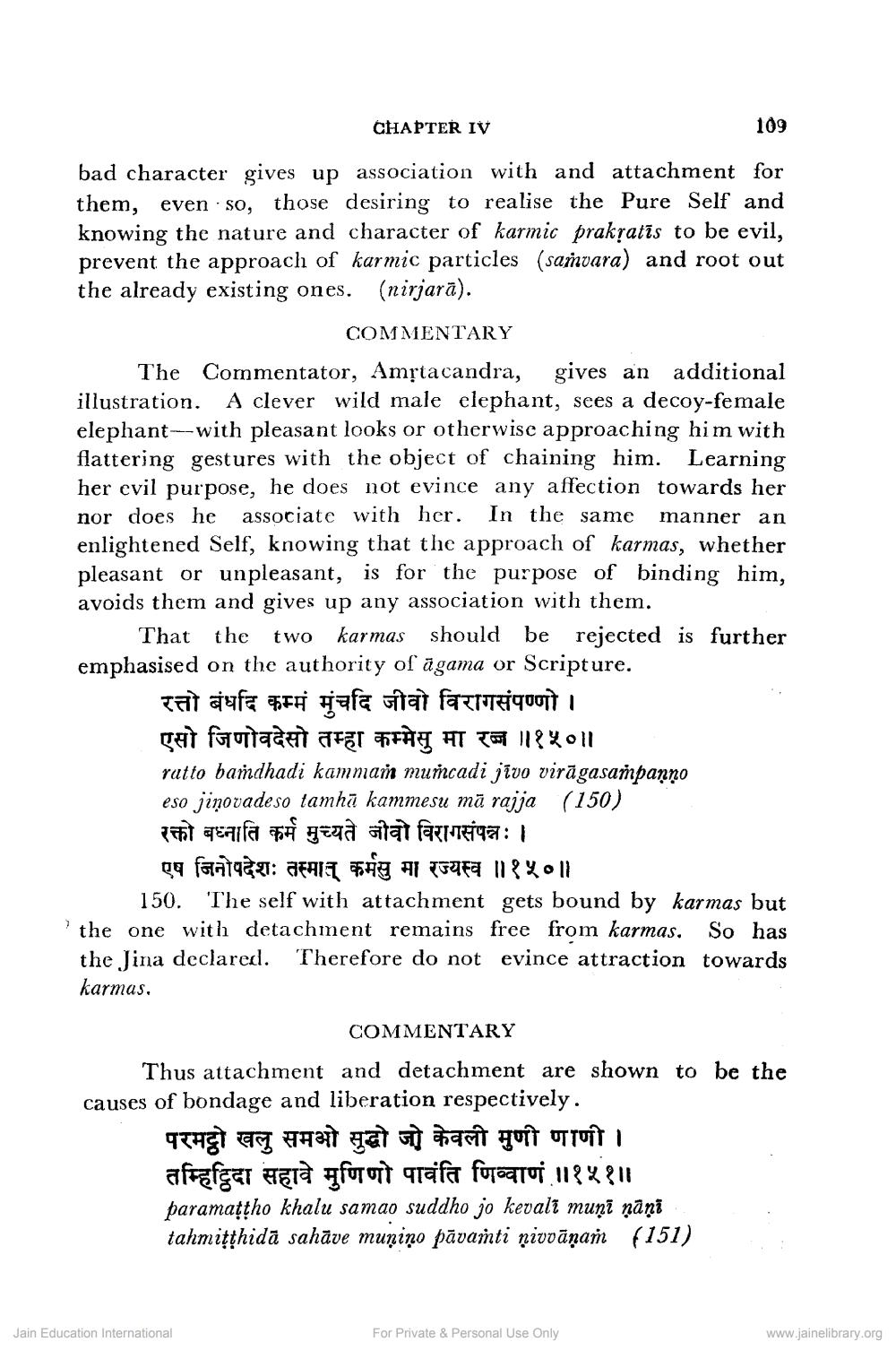________________
CHAPTER IV
109
bad character gives up association with and attachment for them, even so, those desiring to realise the Pure Self and knowing the nature and character of karmic prakratīs to be evil, prevent the approach of karmic particles (samvara) and root out the already existing ones. (nirjarā).
COMMENTARY The Commentator, Amặtacandra, gives an additional illustration. A clever wild male elephant, sees a decoy-female elephant-with pleasant looks or otherwise approaching him with flattering gestures with the object of chaining him. Learning her evil purpose, he does not evince any affection towards her nor does he associate with her. In the same manner an enlightened Self, knowing that the approach of karmas, whether pleasant or unpleasant, is for the purpose of binding him, avoids them and gives up any association with them.
That the two karmas should be rejected is further emphasised on the authority of āgama or Scripture.
रत्तो बंधदि कम्मं मुंचदि जीवो विरागसंपण्णो। एसो जिणोवदेसो तम्हा कम्मेसु मा रन ॥१५०॥ ratto bamdhadi kammañ mumcadi jīvo virāgasampaņņo eso jiņovadeso tamhā kammesu mā rajja (150) रक्तो बध्नाति कर्म मुच्यते जीवो विरागसंपन्नः ।
एष जिनोपदेशः तस्मात् कर्मसु मा रज्यस्व ॥१५॥
150. The self with attachment gets bound by karmas but the one with detachment remains free from karmas. So has the Jina declared. Therefore do not evince attraction towards karmas,
COMMENTARY
Thus attachment and detachment are shown to be the causes of bondage and liberation respectively.
परमट्टो खलु समओ सुद्धो जो केवली मुणी णाणी। तम्हिट्टिदा सहावे मुणिणो पावंति णिव्वाणं ॥१५१॥ paramațýho khalu samao suddho jo kevali munī nāņi tahmițțhidā sahāve munino pāvanti nivvāņaṁ (151)
Jain Education International
For Private & Personal Use Only
www.jainelibrary.org




